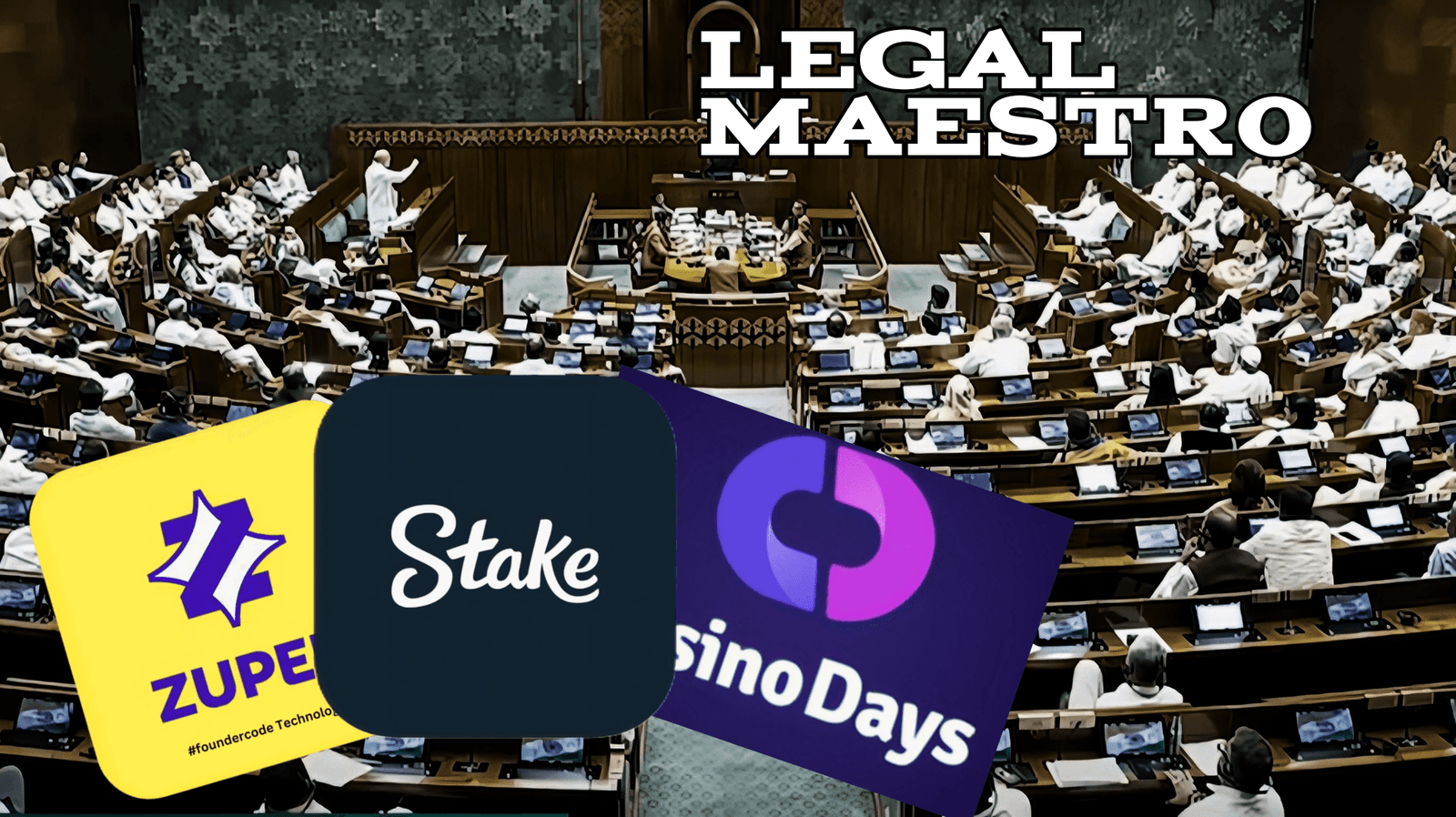
As a result of the expansion of online gaming platforms in India, there have been both opportunities and issues generated. However, despite the fact that the sector provides economic benefits and entertainment opportunities, it also raises worries over addiction, financial losses, and legal uncertainties.
The Indian authorities have been attempting to build a regulatory framework that strikes a balance between innovation and consumer protection. This is in recognition of the difficulties they have identified.
Framework for Centralized Regulation
To control internet gambling, the central government has taken a number of initiatives, including the following:
For any queries or to publish an article or post or advertisement on our platform, do call at +91 6377460764 or email us at contact@legalmaestros.com.
Information Technology Rules: Definitions for online games, games that involve real money, and games that are allowed to be played have been introduced as a result of amendments to the Information Technology (Intermediary Guidelines and Digital Media Ethics Code) Rules.
In accordance with these regulations, intermediaries in the online gaming industry are required to do due diligence, which includes confirming the validity of games and putting in place systems for the resolution of complaints.
According to the policies governing taxes, the Goods and Services levy (GST) Council has levied a levy of 28 percent on the total value of bets that are put on online gambling sites. In addition, the Income Tax Act imposes a thirty percent tax on winnings from online gaming, which is applicable to amounts that are greater than a certain level.
Data Protection: The Digital Personal Data Protection Act mandates that gaming platforms must have stringent security measures in order to protect user information. This highlights the significance of privacy in the digital era.
For More Updates & Regular Notes Join Our Whats App Group (https://chat.whatsapp.com/DkucckgAEJbCtXwXr2yIt0) and Telegram Group ( https://t.me/legalmaestroeducators )
Compliance with State Regulations
Because the Indian Constitution considers gambling to be a matter of state jurisdiction, the several states have each adopted their own legislation regarding the subject:
The purpose of the Tamil Nadu Prohibition of Online Gambling and Regulation of Online Games Act is to facilitate the regulation of activities related to online gaming within the state of Tamil Nadu. By doing so, it creates the Tamil Nadu Online Gaming Authority, which will be responsible for monitoring compliance and following regulations.
Both the state of Karnataka and the state of Kerala have made efforts to prohibit some internet games. In spite of this, their efforts were met with legal opposition, since the courts ruled that absolute prohibitions on games of skill violate the liberties guaranteed by the Constitution.
Courts’ Interpretations of the Law
There is little doubt that Indian courts have been instrumental in the development of the online gaming landscape:
The distinction between games of skill and games of chance has been made by the courts on a regular basis across the course of legal history. Games that require a significant amount of skill are frequently free from gambling bans, whereas games of chance are subject to more stringent regulations.
Constitutional Rights: Legal challenges have brought to light the contradiction that exists between governmental laws and constitutional rights, particularly the right to engage in trade and profession. Legislation that disproportionately restricts these rights without providing sufficient reason has been overturned by their respective courts.
Regulating Oneself as an Industry
In order to supplement the efforts of the government, various industry associations have begun to implement self-regulatory measures:
(SRBs) stands for “self-regulating bodies.” It is the responsibility of SRBs, which are recognized by the Ministry of Electronics and Information Technology, to check the legitimacy of real-money games that can be played online and to ensure that platforms comply to the criteria that have been set.
Code of Ethics: Industry associations have produced codes of ethics in order to encourage responsible gaming, safeguard users, and ensure that the integrity of the gaming ecosystem is preserved.
Obstacles and sources of concern
In spite of the progress made in regulatory oversight, some obstacles still exist:
The cohabitation of central and state legislation results in inconsistencies, which makes compliance difficult for operators. This phenomenon is referred to as regulatory fragmentation.
Conflicts Regarding Taxation: The high tax rates have been questioned by industry players, who argue that they have the potential to hinder growth and innovation.
Consumer Protection: The fact that there have been instances of addiction and financial suffering among users highlights the necessity of consumer protection procedures that are more robust.
India’s strategy for regulating online gaming and gambling is undergoing a process of evolution, with the objective of striking a balance between promoting the growth of the business and protecting the interests of the general public.
Despite the fact that significant progress has been made, it is vital for federal and state authorities, the judiciary, and industry stakeholders to continue working together in order to establish a regulatory environment that is cohesive and efficient. Because the digital world is always shifting, it will be essential to have regulations that are both flexible and forward-thinking in order to manage the new difficulties and opportunities that are emerging in the online gaming industry.




